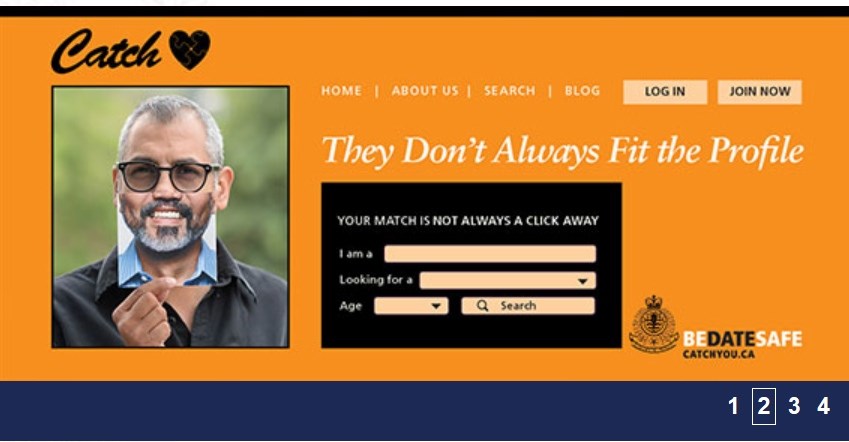They were looking for love online — but that was the last thing they found.
When a 46-year-old Â鶹´«Ă˝Ół»woman was getting ready for her first date with a man she met on a dating site, she never imagined she would wake up the next morning without her clothes on and no recollection of the night before.
 Â鶹´«Ă˝Ół»police Wednesday launched a new online dating safety campaign.
Â鶹´«Ă˝Ół»police Wednesday launched a new online dating safety campaign.
“Everything about him turned out to be false,” she told police.
They had texted for a couple weeks and talked on the phone before agreeing to meet. He insisted on coming to her place, and she agreed even though she wanted to meet somewhere else. At one point she went the washroom and then returned to the living room and finished her glass of wine.
She doesn’t know what happened next. When she woke up the next morning, her clothes were on the sofa in the living room.
“I have no idea how I got from the living room to my bedroom.”
A 28-year-old woman was sexually assaulted after inviting a man she met online in for tea. She told police he had insisted on walking her home after their date and grabbed her, forcing himself on her even though she yelled at him to stop.
Â鶹´«Ă˝Ół»police this week launched a new initiative aimed at helping protect online daters from predators.
“There is no shortage of stories about bad dates gone wrong,” said Det. Const. Michelle Grandbois, an officer with the department’s sex crimes unit. “People dating online, particularly women, are finding themselves at a higher risk for sexual assaults, violent crime and fraud. But the crimes are under-reported and we want to hear from victims so they can access resources and help prevent others from being victimized.”
The new online campaign —  — is designed to help online daters increase personal safety. There are tips on how users can reduce the likelihood of becoming a victim of assault or fraud.
 The VPD’s new catchyou.ca website includes stories from victims, tips for staying safe when meeting people online and what to do if you are a victim of assault of fraud.
The VPD’s new catchyou.ca website includes stories from victims, tips for staying safe when meeting people online and what to do if you are a victim of assault of fraud.
Grandbois said police have a number of tips for people using online dating sites:
- Provide as little personal information as possible on dating profiles and social media sites.
- Use a photo you haven’t used anywhere else online so someone cannot find you through a Google image search.
- Google someone you’re going to meet to look for background information.
- Don’t “friend” potential dates on social media — this could give a stranger unlimited access to information about you, your family and friends.
- Meet dates in a public place and let someone know where you are going and who you are meeting.
“He may sound like your soul mate, but he is still a stranger,” Grandbois said. “Take control of your safety online and help reduce the chances you’ll meet someone very different than you were expecting.”
According to Grandbois, the department made the decision to launch the initiative after seeing an increase in these types of reports.
“In recent years, we’ve seen an increase in reports of sexual assault that initiated with contact on an online dating site or social media,” she said.
“This is very much an in general thing. One site is no better than the other,” she said. “A predator will go onto possibly multiple sites at one time and adapt their profile to the site itself and what they’re catering to.”
Possible red flags to look out for include someone who looks nothing like their photo, or someone who is evasive and can’t or won’t answer simple questions about what they do for a living or where they are from.
The new website includes stories from victims, tips for staying safe when meeting people online and what to do if you are a victim of assault of fraud.


